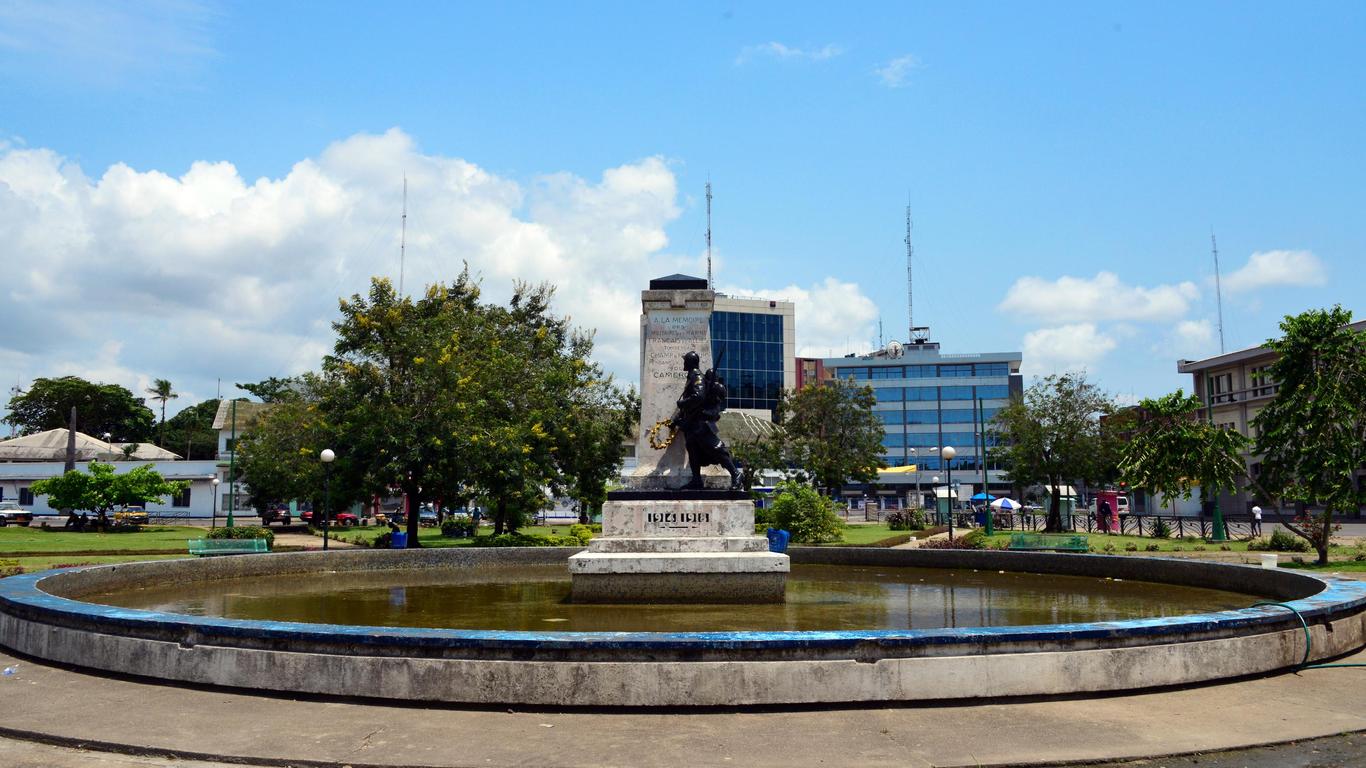1. An Outlandish Colonial-Era Creation
Also known as "the Palace of the Kings Bell", this outlandish mansion was renamed by the writer Celine, who mentioned it in his 'Journey to the End of the Night.' It was originally built in 1905 by the German colonial state for their puppet ruler, King Auguste Manga Ndumbe Bell, and Celine's description seems apt. Similar to Chinese pagodas, but mixed with European and African motifs, it's a unique building for sure.
2. A Feast For Street Food And Retail Fans Alike
Situated in south-western Douala, Marché des Fleurs is the city's premier bazaar, and it's packed with souvenir hunting possibilities. Give the market plenty of time, as it's a big place, and be prepared to haggle. When you get there, you'll find a huge array of craft goods from the region around Douala, including woven baskets, vividly dyed fabrics, traditional carved masks, and sumptuous jewelry. And you'll also find plenty of chances to taste Cameroon's street food. Ndole is a particular favorite, featuring nuts, rice, bitter greens, and either beef or fish, depending on your taste. It's best washed down with the locally brewed beer that is also freely available at the market's refreshment stalls.
3. Song, Dance, Art, Crafts And Much More
Cameroon's French Institute does a great job at keeping the connections between the country and its major foreign influence alive. After the Germans left in 1914, the French took over, and ruled the city until 1960, giving them plenty of time to get a cultural foothold. These days, Franco-Cameroonian interchanges are constant, and this cultural complex is the place to discover them. From film screenings, and dance performances to art exhibitions and debates on political hot topics, there's always something going on at the Institut, and it's usually worth seeing.
4. Where Cameroon's Beach-Hounds Go To Catch The Sun
Drive for 40 miles west of Douala and you'll come to Limbe - Cameroon's premier Atlantic ocean resort town. Aside from the welcoming beach, Limbe is full of appeal, whether you head to the Botanical Gardens (where you can grab some "African Viagra"), or the Wildlife Center, which houses chimpanzees and mandrills. But nothing beats sunbathing a while before munching some grilled fish skewers and relaxing at the line of beach bars, as the sun sets over the Atlantic.
5. The Hub Of Douala's Modern Art Community
Located right next to La Pagode, Doual'art is a vibrant artistic collective which lays a good claim to be Cameroon's leading modern art institution. Founded in 1991 by one of the descendants of King Bell (who built the Pagode), it's a lively space for sculpture, painting, craft production, dance, music, and drama with a strong social side as well. So expect plenty of exhibitions on current issues, as well as a stunning portfolio of contemporary Cameroon's finest artists.

